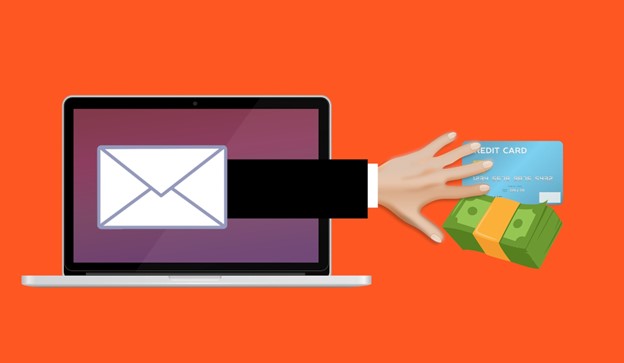You want your business to be successful, keep growing, and stay protected from all dangers. Unfortunately, this is not always possible. Fraudsters and cybercriminals are constantly looking for new ways to exploit people and businesses for their own benefit. Regardless of whether your business is big, medium-sized, or small, everyone is in the same danger. For them, every type of business has a different attraction. With the more prominent companies, fraudsters can get a bigger gain, but those companies usually have stronger protection.
In contrast, attacking small businesses will result in less profit, but those companies are more likely to have a weaker cybersecurity strategy. Cybercriminals and fraudsters are not picky and don’t discriminate against their targets. They will attack just about anyone, which is why cybersecurity needs to become a priority.
Photo: Pixabay
One of the biggest dangers for a company is actually an impersonation attack, as it can have more severe consequences than just a loss of revenue. The impersonation attack can result in reputational damage, loss of customers’ trust, or even legal actions. This is why you must start taking steps to protect your business from impersonation attacks if you want to ensure your business grows.
What is a business impersonation attack?
A business impersonation attack happens when a fraudster or a cyber criminal pretends to be a trusted source so they can steal confidential data from a company or its customers.
This attack is highly successful as it has so many variations, making it hard to predict. For example, fraudsters can pretend they are the company’s CEO, target new or low-level employees, and convince them to give them access to sensitive data or even transfer money. Another type of this attack happens when fraudsters open a fake website impersonating your business and use it to exploit customers by stealing their personal data and credit card details.
These types of attacks happen through various methods such as:
- Email spoofing
- Account takeover
- Phishing scams
- Fake websites
- Fake social media accounts
- Domain spoofing
- Cybersquatting
- Typosquatting
How can you protect your business from impersonation attacks?
Impersonation attacks can damage a company’s revenue in different ways, from losing sales because your customers are purchasing items from a fake website or they are choosing not to do business with you since they have lost trust in you. Luckily, you can ensure your business stays safe by taking the proper steps.
Social media lookup.
As SEON explains on social media lookup, this tool is one of the best ways to verify information about someone and confirm you are dealing with legitimate users. The average person has 8.8 social media profiles; why not use the data you can collect from them to protect your customers and business from dangers. This is especially effective in preventing phishing scams, email spoofing, and account takeover attacks.
Employee training.
Do you think your employees would recognize an attempt of email spoofing? Would they double-check the email sent from the CEO asking them for sensitive information? How likely would they recognize a small typo in their email address that could indicate it is a fraudster? According to the World Economic Forum, 95% of cybersecurity incidents actually happen due to human error. To prevent human error from being your downfall, you need to raise cyber awareness within your company. It is up to every business to ensure their team members understand their responsibilities along with the signs of cyber threats and how to stay safe.
Implement good email and password hygiene.
Defendify’s guide on password hygiene highlights that weak and insecure passwords can pose a great risk to your business. A big percentage of people repeat passwords across multiple accounts, while 70% of users that were connected to breaches still use an exposed password. Ensuring good password hygiene is maintained through the company and implementing multi-factor authentication can reduce the risks of fraudsters taking over your accounts.
Strengthen your financial controls.
A large number of businesses have lax control of their finances, with various members of the team being able to access confidential financial data. Limiting access to financial data to only relevant parties and implementing strong internal controls are essential if you want to prevent fraudsters from getting their hands on it. To prevent fraudsters from gaining access to your finances, you should also implement a secondary authentication that offers an additional level of protection.
Stay informed about the latest scams.
Most companies still rely on their IT professionals to stay informed about the latest threats, but that is not an adequate solution. In order to grow your business, you need to monitor any new emerging trends; cybersecurity is no different. Cyber awareness is critical in keeping your business safe. The more people know about the latest scams, the bigger chances are that someone will manage to recognize the signs and stop them before they can do any damage.
Conclusion
Business impersonation is becoming a big problem in today’s age, and it is only going to become bigger as more companies undergo digital transformation. But, by staying informed about the rising threats and taking proactive steps to deal with them, you can minimize the risk of your business becoming a victim.
